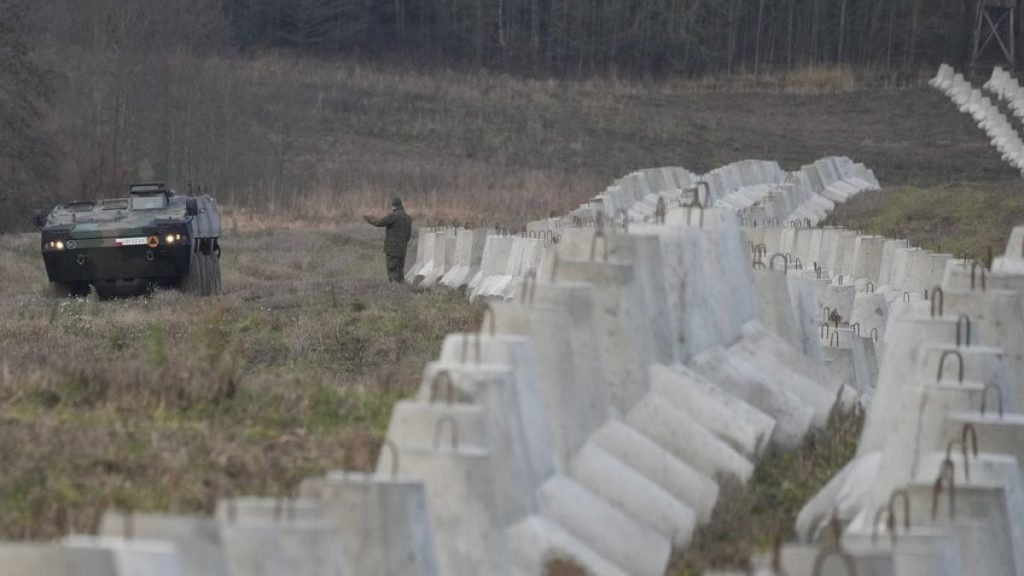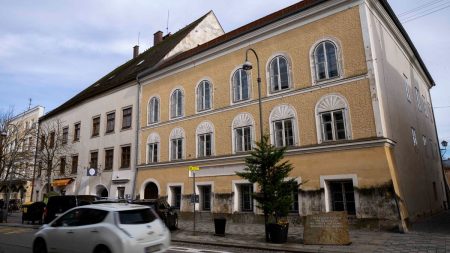Poland’s Prime Minister Donald Tusk recently conducted a significant visit to the border with Russia’s Kaliningrad region to oversee the progress of newly constructed military fortifications, a move reflecting Poland’s growing security concerns amid increasing Russian aggression. Tusk’s inspection comes at a crucial time, as Poland is set to assume the rotating presidency of the European Union in a month’s time. Polish officials emphasize their commitment to urging EU member states to bolster their defenses in light of the threats perceived from Russia and the anticipated shift in America’s foreign policy with Donald Trump taking office. The construction of the fortifications forms part of a broader strategic initiative dubbed “East Shield,” which is designed to improve border security and resilience against hybrid warfare tactics employed by Russia.
As part of the East Shield initiative, Poland’s defenses will extend approximately 800 kilometers along its borders with both Russia and Belarus. This strategic planning includes addressing the multifaceted nature of threats posed by Russia, which has been widely accused of employing disinformation, sabotage, and the deliberate manipulation of migration flows as means of exerting pressure on the West. Prime Minister Tusk underscored the importance of enhancing border security not just as a defensive measure but as a crucial step toward deterrence, stating, “The better the Polish border is guarded, the more difficult it is to access for those with bad intentions.” His remarks during a news conference exemplified Poland’s proactive stance in safeguarding its territory and maintaining national security.
The establishment of the East Shield fortifications represents a historic and significant military investment for Poland, particularly considering its painful history with aggressive neighboring states. As Tusk highlighted, Poland aims to allocate a substantial 4.7% of its gross domestic product towards defense in the upcoming year, which positions the nation as one of the frontrunners in defense spending within NATO. The projected costs for the East Shield initiative are expected to exceed 2.35 billion euros, indicating a serious commitment to military readiness in the face of potential threats. Given that Poland’s eastern borders also serve as the external frontiers of both the European Union and NATO, the strategic implications of such military enhancements go beyond national defense, affecting the broader security landscape of Europe.
Prime Minister Tusk articulated his vision for the East Shield, suggesting that this initiative could ultimately be extended to provide additional protections for the Baltic states of Estonia, Latvia, and Lithuania. This is indicative of Poland’s desire not only to secure its own borders but also to serve as a regional leader in promoting collective security among neighboring countries. Through his comments on this initiative, Tusk conveyed a sense of solidarity and interconnectedness among Eastern European nations, reiterating that strengthening defenses is instrumental in deterring potential aggressors in the region. He framed these military investments as essential efforts to preserve peace, emphasizing that such considerable expenditures are necessary for the security and stability of Europe as a whole.
The fortifications will integrate both visible and critical invisible components, including anti-tank barriers known as “hedgehogs” and natural barriers like ditches, reflecting a sophisticated approach to modern military engineering. In addition to physical barriers, the plans for the East Shield also include sophisticated threat reconnaissance and detection systems, forward bases, logistics hubs, warehouses, and the deployment of anti-drone systems. This composite strategy illustrates a comprehensive approach to not only deter potential military attacks but also to respond effectively to the evolving nature of conflict in the twenty-first century.
In conclusion, Tusk’s visit to the border and the emphasis on the East Shield project signal a pivotal moment for Poland’s defense strategy amid growing geopolitical tensions with Russia. As Poland prepares to undertake the EU presidency, it places national and regional security at the forefront of its agenda. The broader commitment to defense spending, along with cooperative security measures among NATO allies, illustrates Poland’s role as a defender of European stability. As Tusk remarked, the current investments and fortifications are crucial in creating a sense of safety for Poles along their eastern borders while simultaneously ensuring a response to external threats. This significant military initiative reflects Poland’s resilience and determination to secure its future in an increasingly complex international landscape.














